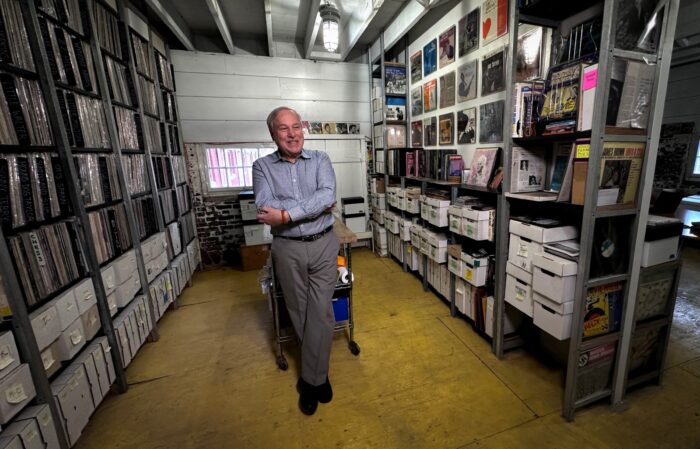3 million sound recordings desperately seeking new home

Bob George, Co-Founder and Director of the Archive of Contemporary Music, one of the largest vinyl record collections in the world that is seeking a new home, poses for a picture during an interview with Reuters in the Archive’s present location in Staatsburg, New York, U.S., January 31, 2024. REUTERS/Andrew Hofstetter
STAATSBURG, New York — Since the start of the pandemic, one of the world’s largest collections of popular music has been housed in a former pig barn in rural New York state.
But difficulty obtaining permits linked to zoning issues means the Archive of Contemporary Music is looking for a new home.
The non-profit archive was founded in 1985 by B. George, who seeded it with his collection of 47,000 records and originally housed it in New York City.
To store two copies of everything – one to be used for listening, and a second as an archival copy – it has since grown to more than 3 million sound recordings.
READ: Once dying, then a novelty, vinyl is back and thriving
Article continues after this advertisementThe archive consists of LPs and 45s, 8 tracks, and cylinder disks, along with books, posters, and vintage memorabilia. Music from across the globe is represented, and the genres range from rock and roll and blues to African, punk, country, hip hop, and experimental.
Article continues after this advertisement“Some people say we’re like the dumpster of pop music,” George said. “I always like to say, no, we’re more like Molly Bloom at the end of “Ulysses,” where we just say yes, yes, yes to everything.”
Rare items include a mint copy white label of an early Rolling Stones record signed by the whole band, a copy of David Bowie’s “Hunky Dory” that the singer signed and decorated with glitter, and a 78 format record of Robert Johnson’s “Me and the Devil Blues” that musician Keith Richards purchased for the archive.
READ: Americans buying more vinyl than CDs for first time in decades
Once the archive has found a new home, George envisions it becoming a public research center that could serve as a library, host resident scholars, and perhaps even include a recording studio for the next generation to put down some tracks.
“I know for a fact, and I’m probably wrong like every science fiction writer, but there won’t be Apple in the future. There won’t be Microsoft in the future. But there’ll be vinyl,” he said.